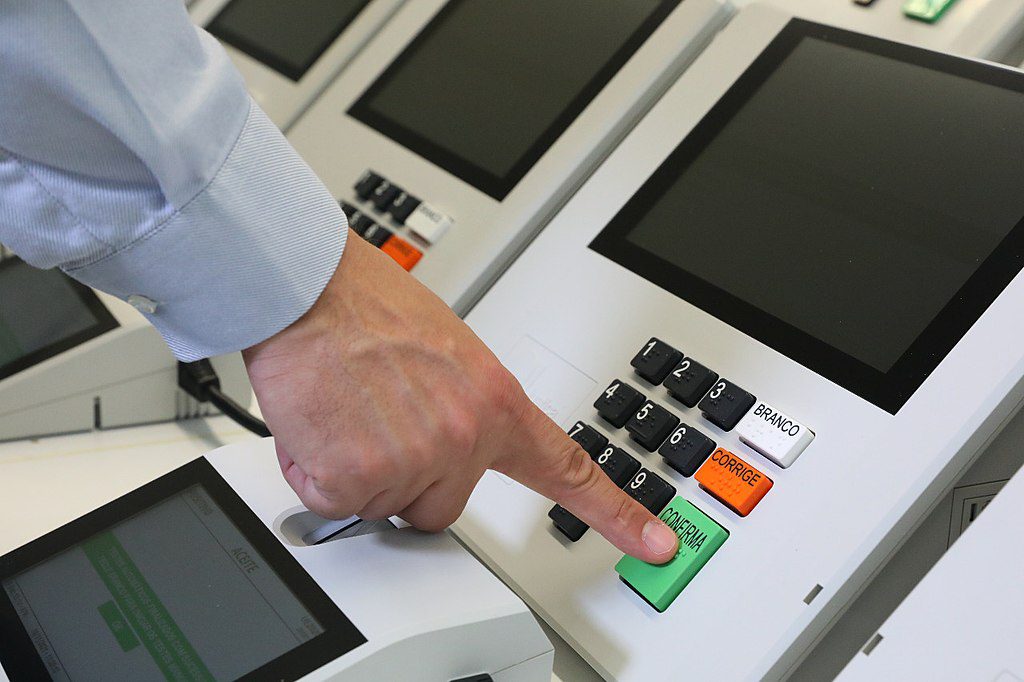
Following Brazil’s recent elections, a group of citizens decided to launch a private audit after it was revealed that their local voting table had tallied no votes for Bolsonaro, despite their having voted for the incumbent.
The group, which has dubbed itself Brazil Was Stolen, engaged in an investigation whose findings were presented during an hour-long press conference on November 4th.
The investigation revealed a striking discrepancy between the results reported by different kinds of vote-counting machines: Newer machines from 2020 tallied more votes for Bolsonaro than older machines which are, on account of their design, non-auditable. The numbers of newer and older machines were apparently quite well distributed so that in some voting tables the two were used side by side.
According to Brazil Was Stolen, there were thousands of cases in which the older machines had counted no votes for Bolsonaro at all. This anomaly occurred in districts where Bolsonaro ended up winning a majority, verified by votes reported by the newer machines.
The group provided the following graph to illustrate the discrepancy between votes for Lula da Silva as registered by different types of vote-counting machines in the Brazilian state of Alagoas:

Reported La Derecha Diario:
According to the research group, a simple reprogramming of the machine’s code before the election could change votes for Bolsonaro into votes for Lula, following simple linear rules such as that the sum of votes in each machine can never result in [Bolsonaro] receiving more votes than [Lula] …
We should reiterate that the pre-2020 machines are not auditable, which means that their source code cannot be accessed after the election to verify the algorithm they were operating with on the day of the vote. On the other hand, machines purchased in 2020, where no anomaly was recorded, are perfectly auditable.
Following this press conference, #BrazilWasStolen rose to the top trending topic on Brazilian Twitter.
Political consultant Fernando Cerimedo clarified that, so far, the group does not have definitive evidence that the election was fraudulent, albeit it has revealed striking irregularities, justifying further governmental investigation.
Immediately following the press conference, the country’s Superior Electoral Court (TSE) decided that doubting the election results falls outside the bounds of free expression in Brazil.
The website detailing the irregularities, together with the ‘Brazil was Stolen’ YouTube, Twitch, and Facebook accounts were all taken down.
Politicians who had mentioned the possibility of electoral fraud, Nikolas Ferreira, Carla Zambelli, and Gustavo Gayer have since had their Twitter accounts blocked in Brazil.
Even the YouTube channel and Instagram account belonging to the media outlet that covered the press conference, La Derecha Diario, have been blocked.
There is precedent for this kind of cracking down on free speech.
Even The New York Times took notice of the climate of censorship prior to the elections. Concerning a “group chat on WhatsApp” featuring “dozens of Brazil’s biggest businessmen,” in which anti-Lula statements were made, including one participant who expressed a preference for a coup over a far-left government, the newspaper reported that, “alarming[ly] for the world’s fourth-largest democracy:”
Federal agents raided the homes of eight of the businessmen. The authorities froze their bank accounts, subpoenaed their financial, phone, and digital records, and told social networks to suspend some of their accounts.
The order came from one Supreme Court judge, Alexandre de Moraes. The only evidence it cited was the WhatsApp group messages, which had been leaked to a journalist. In those messages, only two of the eight businessmen had suggested they supported a coup.
It was a raw display of judicial force that crowned a trend years in the making: Brazil’s Supreme Court has drastically expanded its power.
This “drastic expansion” of power shows no signs of abating.
There is civic resistance, however, with protesters taking to the streets, and some calling for the Armed Forces to take a position.
For his part, Bolsonaro seems to have initially accepted the results, instructing the Civil House to begin a presidential transition.
